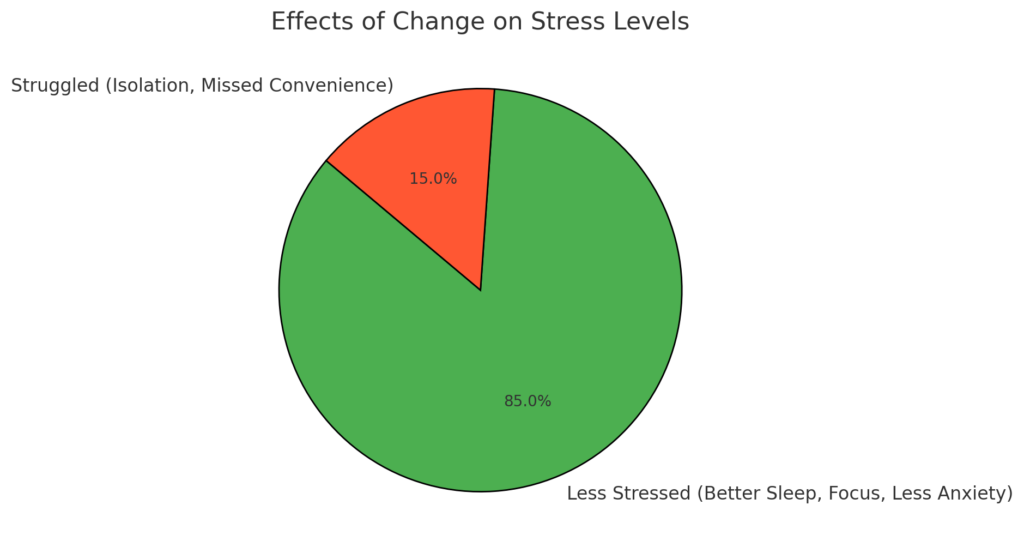A movement triggered by a study in Germany has the whole world watching in anticipation. The study, conducted by researchers at Heinrich Heine University in Düsseldorf, wrapped up recently. And it dropped some eye-catching results this week. They took a group of 200 participants with mixed ages. Mostly urban dwellers and had them ditch smartphones entirely for 30 days. Imagine.
No calls, no apps, no scrolling. Just basic flip phones for emergencies. The outcome? A whopping 85% reported feeling less stressed. Many citing better sleep, sharper focus, and a drop in that nagging “always-on” anxiety. The other 15%? They struggled. Some felt isolated, others missed the convenience. But even they noted a quieter mind by the end.
The study wasn’t just about feelings. It provided data to back it up. Participants wore fitness trackers to monitor sleep and heart rate variability (a stress indicator). Those metrics improved across the board. Sleep duration up by an average of 40 minutes, stress markers down by 20%. Surveys also showed a dip in self-reported burnout symptoms, especially among the 25-40 age group. They were the heaviest smartphone users at baseline. The researchers tied this to reduced screen time cutting down on dopamine overstimulation and the constant ping of notifications. Basically, giving brains a breather from digital overload. Neat.

This isn’t a one-off idea floating in a vacuum. Germany’s been wrestling with climbing depression rates. They are up 15% since 2020, per the German Depression Foundation. Burnout is a growing buzzword, especially in cities like Berlin and Munich where the work culture is intense. The Düsseldorf findings hit at the right time, amplifying a push for “digital wellness” that’s been needed. Berlin’s taken it and run with it, launching pilot programs for “phone-free zones.” In schools, a handful of Gymnasiums (secondary schools) in Kreuzberg and Mitte are testing no-phone classrooms. Lockers for devices at the door, analog lessons only. Early feedback from teachers says kids are chattier and less distracted, though some parents grumble about emergency access. But we cannot keep everyone happy.
Workplaces are jumping in too. A few tech startups and even a Deutsche Telekom office in Berlin are trialing phone-free break rooms and meeting blocks. You leave your device at your desk, grab a coffee, actually talk to people. One manager told a local paper it’s cut meeting times by 25% because folks aren’t half-listening while texting. The vibe’s less about banning tech and more about carving out intentional breaks. Think of it as a mental health smoke break, minus the nicotine.
The push isn’t without pushback. Critics, especially in online forums, argue it’s impractical in a connected world. One post I saw called it “hippie nonsense for privileged desk jockeys.” Others worry it could widen social gaps. Low-income folks might rely on phones for jobs or family ties more than the study’s middle-class sample. And the 85% stat? Some psychologists are cautioning it might not scale. 30 days is a sweet spot, but permanent detox could backfire with loneliness or boredom.
Still, the trend’s gaining legs. Düsseldorf’s city council is mulling a public campaign. Think posters on U-Bahn trains nudging people to “unplug for a day.” Mental health advocates are lobbying for insurance to cover digital detox retreats, framing it as preventative care. And with depression rates still creeping up, hitting 9% of adults last year, per RKI stats, this could be a low-cost, high-impact counterpunch.
It’s early days, but the Düsseldorf study has started a movement. Berlin’s pilots might just turn it into something much bigger. Freedom from smarphones at last.

